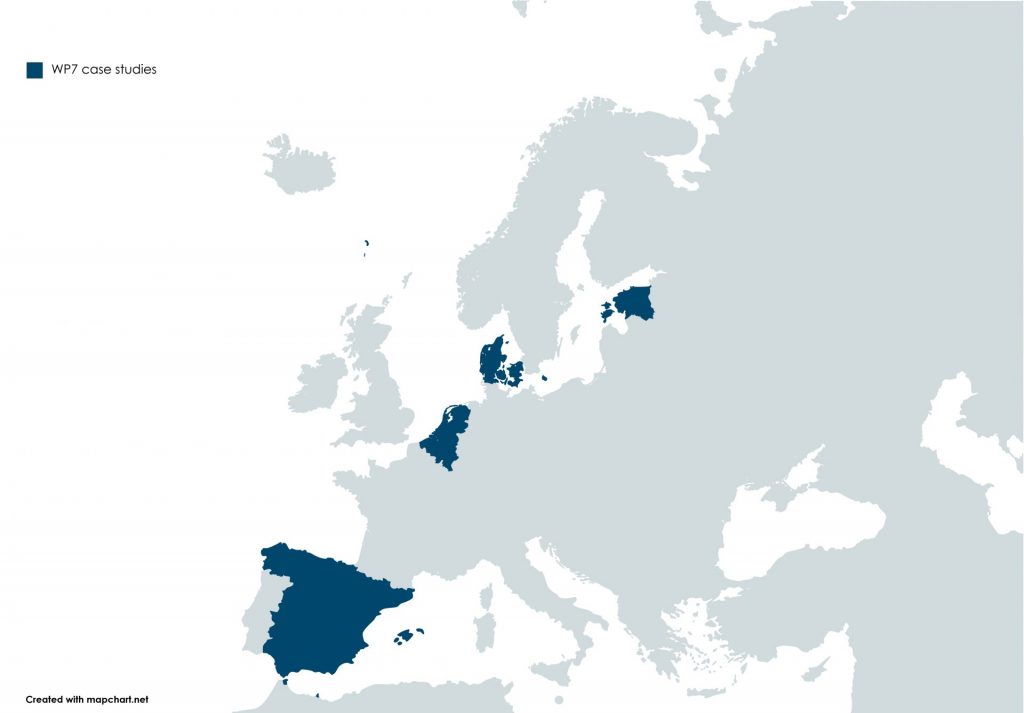Practices of External Collaboration for Service Delivery (Work Package 7 – WP7)
Led by the University of Antwerp (Belgium), this work package is conducting research from July 2020 to May 2021.
The WP7 team studies different kinds of partnerships between government, private stakeholders, and users in the creation and delivery of innovative services. It focuses on a variety of conditions involved in the collaborative innovation of external service creation and delivery (including partnership features such as partnership structure, management, leadership and trust, features of the involved individuals and organizations such as attitudes, skills, knowledge, and incentives, the use of ICT in the partnership, and user involvement).
The WP7 team aims at answering the research question whether and under which conditions different types of partnerships result in the development and implementation of innovative public services and to what extent this is caused by
- Processes of collaborative innovation,
- Features of the partnership,
- Features of individuals, organisations, and the external environment,
- The use of ICT in the collaboration, and
- The involvement of users in the collaboration.
To answer this question, WP7 conducted:
- Comparative case studies of collaborative eHealth projects in five countries
- An in-depth analysis of the conditions shaping collaborative partnerships for innovative public service creation and delivery
Research
The WP7 team initiated its work with a preparatory literature review and secondary analysis of existing empirical material, with the aim of generating a theoretical framework, which combines different types of partnerships, such as networks, collaborative innovation partnerships and co-production arrangements.
19 case studies of collaborative eHealth projects were then conducted in five countries (Belgium, Denmark, Estonia, Spain, and the Netherlands). With a cross-case analysis of 131 interviews with project coordinators, public and private collaboration partners, and users (e.g. citizens, health care professionals, patients, etc.), the WP7 team investigated the conditions that affect collaborative partnerships in creating innovative public services. Collaborating with private stakeholders presents an interesting avenue to stimulate innovation in public services, as it connects knowledge from varied fields and promotes learning processes that facilitate innovation. See D7.1 Practices of External Collaboration for Service Delivery. Comparative case studies on external collaboration in eHealth partnerships.
A deeper analysis of these conditions using qualitative comparative analysis (QCA) and Q-methodology was conducted to study the conditions under which collaboration between public and private stakeholders and users leads to innovation in public services.
Based on the findings of this research, the WP7 team developed a policy brief and a set of practical recommendations for successful collaborative partnerships and fostering innovation in public services, highlighting i.a. the importance of designing an appropriate governance structure and adapting it to the partnership, ensuring an optimal management and leadership balance, securing external support for the project, encouraging learning processes, and involving users in the project.
See D7.3 – Policy Brief – Enhancing innovation through public-private collaboration and Annex to the Policy Brief – Extended list of recommendations.
Results and findings
One of the most important results from this research is the presence of both structure-related conditions and process-related conditions in collaborative innovation processes. Structure-related conditions provide a stimulating setting for the collaborative process. Examples of such conditions are the composition of the partnership, the governance structure of the partnership, the variety of resources and knowledge of the partners, etc. A good design of a collaborative partnership entails these structure-related conditions. However, process-related conditions are important during the actual collaboration and innovation process, as they steer the partnership towards innovative end results. Process-related conditions entail network management, leadership, learning, consensus-building, how users are involved in the process, how ICT is used during the process, etc. The WP7 research shows that an optimal balance between these two types of conditions is crucial to create innovative services in collaborative partnerships.
Scientific publications
The WP7 research will finish in May 2021, with the publication of two articles in SSCI-ranked journals and one edited volume.
The team
The WP7 team is led by the University of Antwerp (Belgium) and gathers partners from Erasmus University Rotterdam (the Netherlands), Roskilde University (Denmark), Tallinn University of Technology (Estonia), and University of Zaragoza (Spain).






















